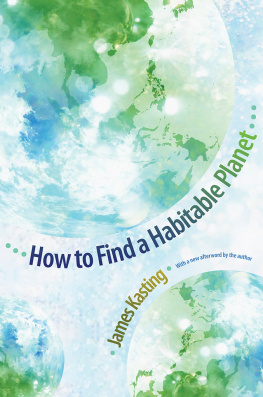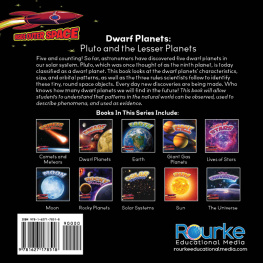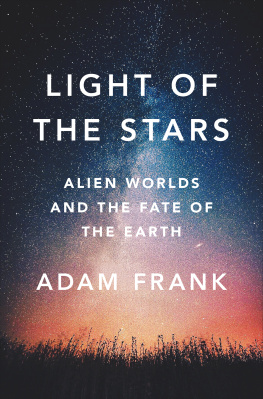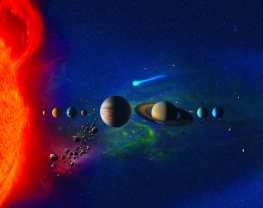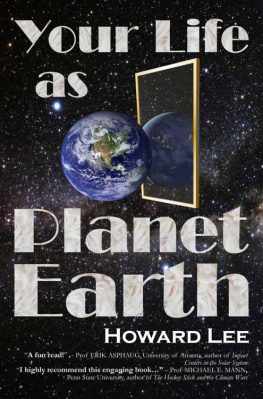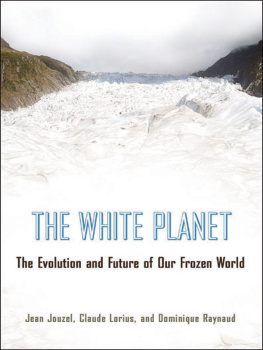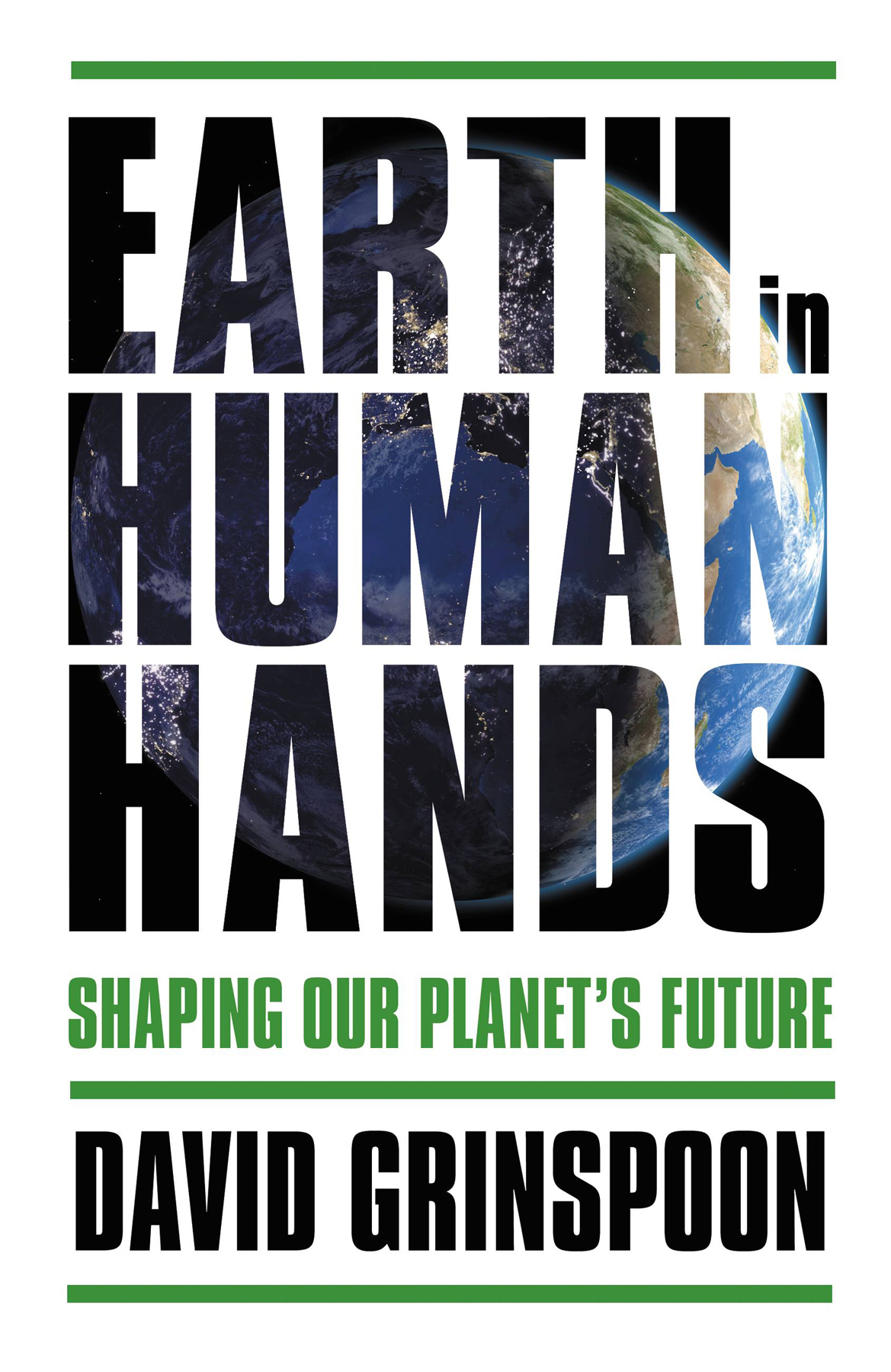For Jennifer, who always makes me feel that I am in good hands.
A Planetary Perspective on the Human Predicament
Gazing over the countless fluctuations and transformations in Earths multibillion-year history, I am struck by the unique strangeness of the present moment. We suddenly find ourselves sort of running a planeta role we never anticipated or soughtwithout knowing how it should be done. Were at the controls, but were not in control. This book is my view of how we got into this situation, and where that leaves us now.
A child of the space age, I grew up captivated by the romance of planetary exploration. My timing was right to become a NASA research scientist working in the new field of astrobiology, the scientific study of life in the universe. My participation in the spacecraft exploration of other planets has informed my view of our presence on this one. In these pages Ill describe how we humans fit into the long-term story of Earth, and how I believe this knowledge can help us to navigate our current time of environmental stress and uncertainty about the future.
Although climate change is the most obvious, it is only one of a large number of interconnected ways in which we have suddenly begun to modify the planet we inhabit. The scientific community is now converging on the idea that we have entered a new phase, or epoch, of Earth historyone in which the net activity of humans has become a powerful agent of geological change, equal to the other great forces of nature that build mountains and shape continents and species. The proposed name for this new epoch is the Anthropocene or the age of humanity. This concept challenges us to look at ourselves in the mirror of deep time, measured not just in decades or centuries or even in millennia, but over hundreds of millions and billions of years.
The realization that humans may have initiated a new geological phase also disrupts and rearranges all our systems of timekeeping. Think of these three timescales: human history with its long procession of civilizations, migrations of people, and waves of technologies, ideas, and modes of thought; geologic time with its ages and epochs marking fluctuations in environment, climate, and sea level, recorded in the layers of rocks; and, closely related, biological time, the evolving stages and forms of life logged in the fossil and molecular records. The Anthropocene represents a braiding together of these into one inseparable narrative. This is the end of history, and of biology and geologyat least as separate stories. Have they become irreversibly entwined? Its conceivable that there may never again be geological change without human influence.
We are witnessing, and manifesting, something unprecedented and still completely unpredictable: the advent of self-aware geological change. As an astrobiologist, I study the possible evolutionary relationships between life and the planets that may host it. I see the Anthropocene as a tricky new step in the long, intricate dance between Earth and its biosphere that has been going on for four billion years. There are those who object to the name Anthropocene as being too self-aggrandizing and serving a destructive, human-centered viewpoint. But this epoch is well-named because it represents a recognizable turning point in geological history brought about by one species: anthropos. And our growing acknowledgment of this inflection can be a turning point in our ability to respond to the changes weve set in motion. I believe that, more than the extreme and undeniable physical changes to the planet being caused by human influence, it is this dawning self-recognition that is really fundamentally different and, ultimately, promising about the Anthropocene. Many species have changed the planet, to the benefit or detriment of others, but there has never before been a geological force aware of its own influence.
Popular treatments of this rich subject have too often focused on the ongoing argument about whether or not the Anthropocene should officially be recognized as a new epoch within the geologic timescale, and at what point it began. Yet that debate has spurred a fascinating re-examination of the various stages of encroaching and accelerating human influence on Earth since the end of the last ice age twelve thousand years ago. And the Anthropocene has now garnered the attention of people thinking far afield of geologic timekeeping. The sharp human torqueing of Earths landscapes, habitats, and global cycles presents a range of challenges that go well beyond the physical and biological sciences.
In 2012, I saw an announcement that opened up a door for me. The John W. Kluge Center at the Library of Congress, in partnership with the NASA Astrobiology Institute, was advertising a new position, a chair of astrobiology. They would support a scholar in residence to pursue research at the intersection of the science of astrobiology and its humanistic and societal implications. I fantasized that this might give me the opportunity to write the book that you are now reading. My proposal was accepted and I was selected as the inaugural chair. I was were great fun, and I hope that some of the broadened perspective they provided has found its way onto these pages. Also among the joys of writing in Washington is the group of local scholars Ive come to know, who are studying the Anthropocene from many different points of view. Our informal Washington Anthropocene Group started meeting at the Library of Congress, and has since migrated to several museums and universities, often continuing the conversation at local bars. Im the only astrobiologist, but weve had geologists, historians, geographers, anthropologists, paleontologists, materials scientists, and others. At conferences and on the Web, Ive met philosophers, ethicists, artists, and economists, all wrestling with the concept of humanity as a planet-changing force. Whatever its fate as an official geological time period, the concept of the Anthropocene has sparked a thousand worthwhile interdisciplinary conversations about the human role on Earth.


